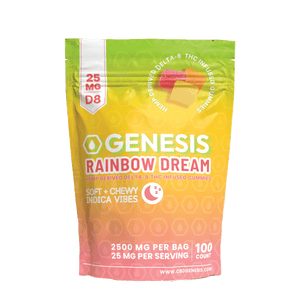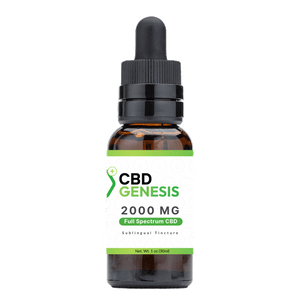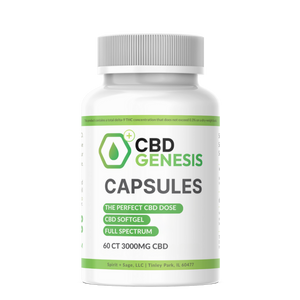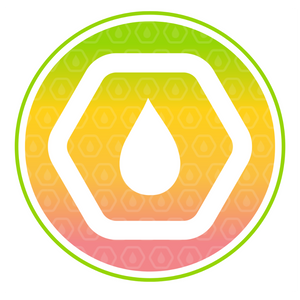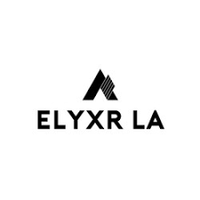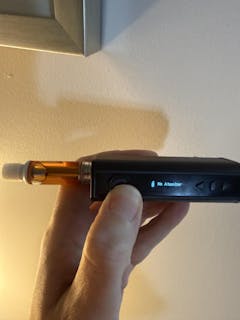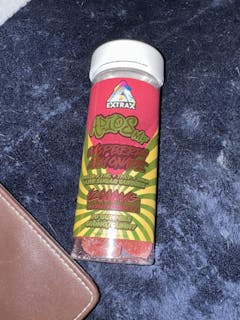-
-
-
-
-
Genesis
Genesis DreamBerry: Sleep Support Gummies with CBD, CBN & Melatonin
4.5'Regular price $40.00 -
-
-
-
-
-
-
Genesis
CBD Gummies Bundle | Anytime + Night Time Support Plus
Sale price $64.00 Regular price$80.00 -
-
Genesis
SAMPLE PACK | Genesis Alchemy: Digestive Formula – Metabolism + Gut Health Blend
Regular price $10.00 -
Genesis
SAMPLE PACK | Genesis Alchemy: Sleep Formula - Botanical Blend for Rejuvenating Rest
Regular price $10.00 -
-
-
-
-
-
-
-
Genesis
Genesis DreamBerry: Sleep Support Gummies with CBD, CBN & Melatonin
4.5'Regular price $40.00 -
-
-
-
-
-
-
-
Genesis
CBD Gummies Bundle | Anytime + Night Time Support Plus
Sale price $64.00 Regular price$80.00 -
Genesis
SAMPLE PACK | Genesis DreamBerry: Sleep Support Gummies with CBD, CBN & Melatonin
Regular price $10.00 -
-
-
-
-
-
Delta Extrax
Extrax Adios MF 7g Disposable (D9, THCP ,THC-a, D8 live sugar)
5.0'Regular price $60.00 -
Delta Extrax
Delta ExtraX - Adios Blend THCA + Delta-9P THC Disposable 4.5G
4.5'Sale price $50.00 Regular price$60.00 -
-
-
-
-
Customer Testimonials
Real Users | Real Results
-
Love these. Over 50 years of insomnia GONE.
Delta-8 Gummies
Susan -
I've taken Delta -8 gummies for some time and tried different brands with ok results and some that would leave me with a headache or nasty "hangover". I started do some research last year and CBD Genesis came up so I decided to give them a try ...
Jim Lapsley -
My dad turned me on to Genesis maybe 5 years ago. Since then I’ve tried a couple other sites and they’ve been hit or miss with their quality and always fallen way short in the customer support end, which is just as important to me as the gummie...
Jon -
I started using CBD Genesis during Covid because Bronchitis made it to where I couldn’t smoke anymore. I shopped about 80 companies and you had the strongest gummies with the desired euphoric results.
Christine -
The best tasting gummies I've found anywhere.
Veta -
Excellent product, quality made, what’s even better, the customer service was outstanding. Highly recommend this company. On a 5 star rating, a solid 5.
Theresa
-
Excellent product, quality made, what’s even better, the customer service was outstanding. Highly recommend this company. On a 5 star rating, a solid 5.
Theresa -
The best tasting gummies I've found anywhere.
Veta -
I started using CBD Genesis during Covid because Bronchitis made it to where I couldn’t smoke anymore. I shopped about 80 companies and you had the strongest gummies with the desired euphoric results.
Christine -
My dad turned me on to Genesis maybe 5 years ago. Since then I’ve tried a couple other sites and they’ve been hit or miss with their quality and always fallen way short in the customer support end, which is just as important to me as the gummie...
Jon -
I've taken Delta -8 gummies for some time and tried different brands with ok results and some that would leave me with a headache or nasty "hangover". I started do some research last year and CBD Genesis came up so I decided to give them a try ...
Jim Lapsley -
Love these. Over 50 years of insomnia GONE.
Delta-8 Gummies
Susan
Didn't find the product you were looking for?
-
Reporting Analytics
Oral vs. Sublingual CBD: Which Method is Best?
As the popularity of CBD continues to rise, con... -
Reporting Analytics
Choosing Your First CBD Product: The Best CBD for Beginners and How to Start Safely
Navigating the world of CBD can be overwhelming... -
Reporting Analytics
CBG Cannabinoid: Understanding Effects, Benefits, and Uses of the Mother of All Cannabinoids
CBG, or cannabigerol, is often referred to as t... -
Reporting Analytics
The Complete Guide to CBD + THC Tinctures: Broad Spectrum, Full Spectrum & High-Potency Blends - A Practical Guide
CBD Tinctures are concentrated cannabis extract... -
Erica Farrell
Understanding the Differences: CBD, Delta-8 THC, Delta-9 THC, THC-A, and THC-P
In the ever-evolving world of cannabis and its ...





